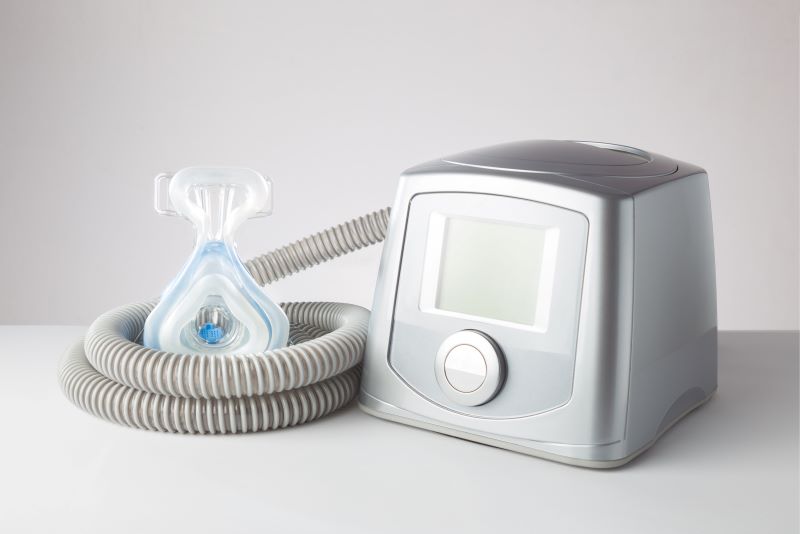Mastering the Basics of CPAP Therapy: Tips, Challenges, and Maintenance

Sleep apnea once held countless individuals in its grip, rendering nights restless and days filled with fatigue. But with the embrace of CPAP therapy, a renewed sense of vitality and wellness is achievable. This guide shows the nuances of adapting to CPAP, addressing early challenges, and the imperative of maintaining your CPAP equipment.
Initial Challenges and Solutions
Starting CPAP has its challenges. However, promptly acknowledging and addressing these hurdles can lead to a seamless and practical CPAP experience.
- Mask Discomfort: One of the foremost concerns new users express is the initial discomfort of the mask. It might feel foreign, even claustrophobic, to some. Yet, this sensation doesn’t last long. As users get used to the therapy, the mask becomes an almost unnoticed aspect of their sleep ritual. It’s paramount to remember that the market boasts an array of mask types and sizes. There’s something for everyone, from full-face masks that cover the nose and mouth to nasal pillows that rest just beneath the nostrils. Regular consultations with sleep therapists and proactive feedback ensure users find their ideal fit.
- Adjusting to Air Pressure: Feeling the constant air stream can be unnerving initially. Many modern CPAP machines feature a “ramp” mode, which allows users to start their therapy at a lower pressure, gradually increasing to the prescribed levels, making the adjustment period more comfortable.
- Dryness and Congestion: Some users report feeling dryness in the throat or nasal congestion, where the machine’s built-in humidifier comes into play. Adjusting humidity settings can make a significant difference, ensuring the air you breathe is moist and comfortable.
Maintenance and Cleaning
Cleaning is non-negotiable to get the maximum benefit from CPAP therapy and safeguard against potential health risks.
- Daily Cleaning Rituals: Make it a habit to wipe down your mask with a soft cloth to remove oils and sweat every morning. This ensures hygiene and prolongs the life of the mask seal.
- Weekly Maintenance: Set aside time once a week for a thorough cleaning. Detach the mask and tubing from the CPAP machine. Using mild soap and warm water, gently cleanse them, ensuring all components are free from dirt and residue. Rinse thoroughly and allow them to air dry, away from direct sunlight.
- Machine Care: While the machine doesn’t require frequent cleaning, regularly replacing the air filter is essential. Depending on the environment and air quality, this might range from once a month to every few months.
Water Chamber Maintenance: If your machine has a humidifier, ensure the water chamber is cleaned weekly. Use distilled water to prevent mineral buildup and replace the water daily.
Monitoring and Follow-up
CPAP therapy’s efficacy isn’t just about the initial setup but consistent monitoring and feedback.
- Leveraging Technology: Many CPAP machines are now integrated with apps or online platforms, providing a comprehensive look into your sleep data. Such insights, from the duration of usage to potential mask leaks, can help refine your CPAP experience. Monthly or quarterly reviews of this data can spotlight areas for improvement or indicate when it’s time for a professional consultation.
- Regular Check-ins: Schedule regular appointments with your sleep therapist. These sessions can address discomfort, solve emerging challenges, and adjust therapy parameters for optimal results.
FAQ
Q: I’m new to CPAP and find the mask uncomfortable. What should I do?
A: Initial discomfort with the CPAP mask is common. Consult with your sleep therapist for guidance. Various mask types and sizes are available, so you can find one that fits comfortably.
Q: Why does the air pressure feel too strong when I start the machine?
A: Many CPAP machines have a “ramp” mode that allows users to begin therapy at a lower pressure, gradually increasing to prescribed levels. This can make the adjustment period more comfortable.
Q: How often should I clean my CPAP equipment?
A: You should wipe down your mask daily and undertake a thorough cleaning of all components weekly. Additionally, ensure the water chamber is cleaned weekly if your machine has a humidifier.
Q: How can I monitor my progress with CPAP therapy?
A: Modern CPAP machines often integrate with apps or online platforms, providing detailed insights into your sleep data. Regularly reviewing this data can help refine your therapy experience.
Q: Is distilled water necessary for the humidifier?
A: Distilled water prevents mineral buildup in the water chamber, ensuring the air you breathe is clean and moist.
Parkway Sleep Health Center
CPAP therapy offers a transformative path to restorative sleep and overall health. CPAP can be rewarding and rejuvenating through awareness, diligence in maintenance, and proactive monitoring. Parkway Sleep Health Center sells CPAP accessories online, and we have a sleep study clinic where we can monitor you and see what CPAP equipment works best for you. Contact us at 919-439-3463 today.



